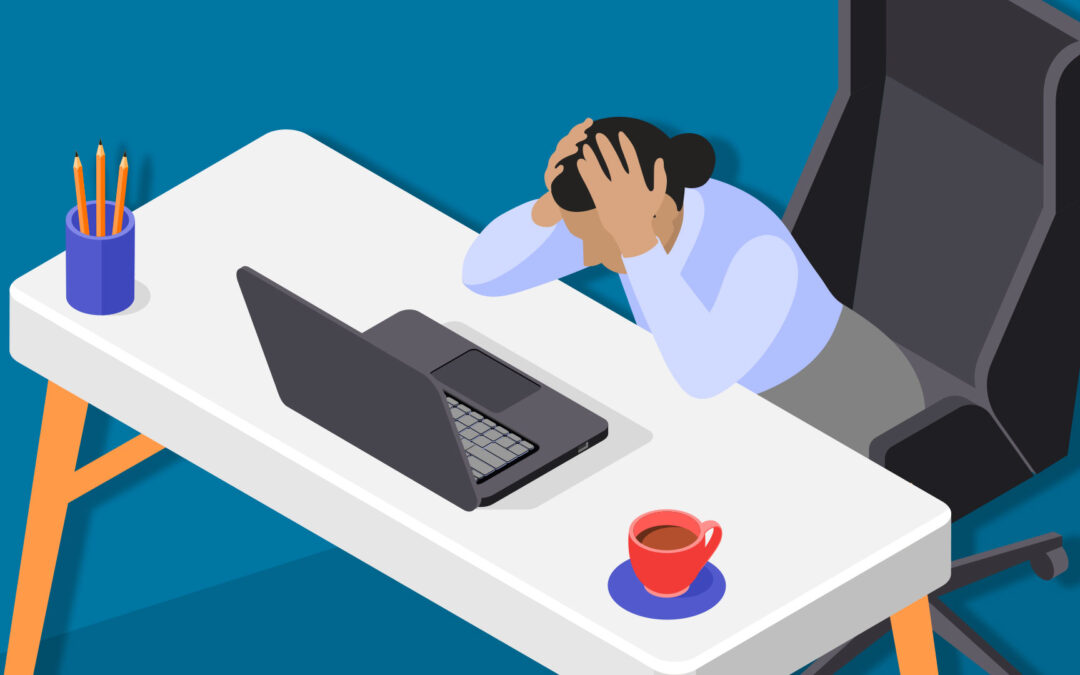In the fast-paced and demanding world of today’s professional landscape, work stress has become an increasingly prevalent issue affecting individuals across various industries.
As the boundaries between work and personal life blur, the impact of stress on both mental and physical well-being cannot be overstated.
This article aims to explore the causes of work-related stress, its effects on individuals, and practical strategies for managing and mitigating its impact.
Causes of Work Stress
High Workload and Pressure
One of the primary contributors to work stress is the high workload and pressure that many professionals face. Tight deadlines, challenging projects, and a constant need to meet or exceed expectations can lead to feelings of overwhelm and anxiety.
Lack of Control
Individuals who feel they have little control over their work or the decisions that affect them are more likely to experience stress. A lack of autonomy can lead to a sense of powerlessness, which is detrimental to mental well-being.
Poor Work-Life Balance
With the advent of technology, the line between work and personal life has become increasingly blurred. Constant connectivity and the expectation of being available around the clock can disrupt a healthy work-life balance, leading to chronic stress.
Unclear Expectations and Role Ambiguity
When employees are uncertain about their roles, responsibilities, or expectations, it creates a breeding ground for stress. Clarity in communication and well-defined job roles can help alleviate this source of stress.
Lack of Social Support
Isolation at the workplace can contribute significantly to stress levels. A lack of social support, whether from colleagues or supervisors, can make the challenges of the job seem more overwhelming.
Consequences of Work Stress
The consequences of prolonged exposure to work stress are far-reaching and can affect both individuals and organizations.
From a personal standpoint, chronic stress can lead to burnout, anxiety, depression, and physical health issues such as cardiovascular problems and weakened immune systems.
On an organizational level, increased absenteeism, decreased productivity, and higher turnover rates may result from a stressed workforce.
Strategies for Coping with Work Stress
Prioritize and Organize
One of the fundamental steps in managing work stress is effective prioritization and organization. Break down tasks into manageable components, create to-do lists, and set realistic deadlines.
This approach helps create a sense of control and accomplishment, reducing the feeling of being overwhelmed.
Establish Boundaries
Maintaining a healthy work-life balance is crucial for preventing burnout. Set clear boundaries between work and personal life, including defined working hours and dedicated time for relaxation and leisure.
Resist the temptation to constantly check work emails or engage in work-related activities during personal time.
Communication and Collaboration
Foster open communication and collaboration within the workplace. Discuss workload concerns with supervisors, delegate tasks when possible, and seek support from colleagues.
Building a positive and supportive work environment can help alleviate stress and promote teamwork.
Time Management
Develop effective time management skills to optimize productivity. Use techniques such as the Pomodoro Technique, where work is broken into intervals with short breaks in between, to maintain focus and prevent burnout. Prioritize tasks based on urgency and importance.
Self-Care
Prioritize self-care to nurture both mental and physical well-being. Incorporate regular exercise, sufficient sleep, and healthy nutrition into your routine.
Engage in activities that bring joy and relaxation, whether it’s reading, practicing mindfulness, or spending time with loved ones.
Learn to Say No
Recognize your limitations and learn to say no when necessary. Overcommitting to tasks and projects can lead to increased stress and a decline in the quality of work.
Setting realistic expectations and boundaries is crucial for maintaining a sustainable workload.
Seek Professional Help
If work stress begins to take a toll on your mental health, don’t hesitate to seek professional assistance. Mental health professionals can provide coping strategies, stress management techniques, and a supportive space to discuss and address underlying issues.
Conclusion
Work stress is an inevitable aspect of professional life, but it doesn’t have to define our experiences. By understanding the nature of stress, recognizing its potential consequences, and implementing effective coping strategies, individuals can navigate the challenges of the workplace with resilience and balance.
Employers also play a crucial role in fostering a healthy work environment by promoting open communication, providing resources for stress management, and prioritizing the well-being of their workforce.
Through collective efforts, we can create workplaces that promote productivity, innovation, and, most importantly, the holistic well-being of employees.

